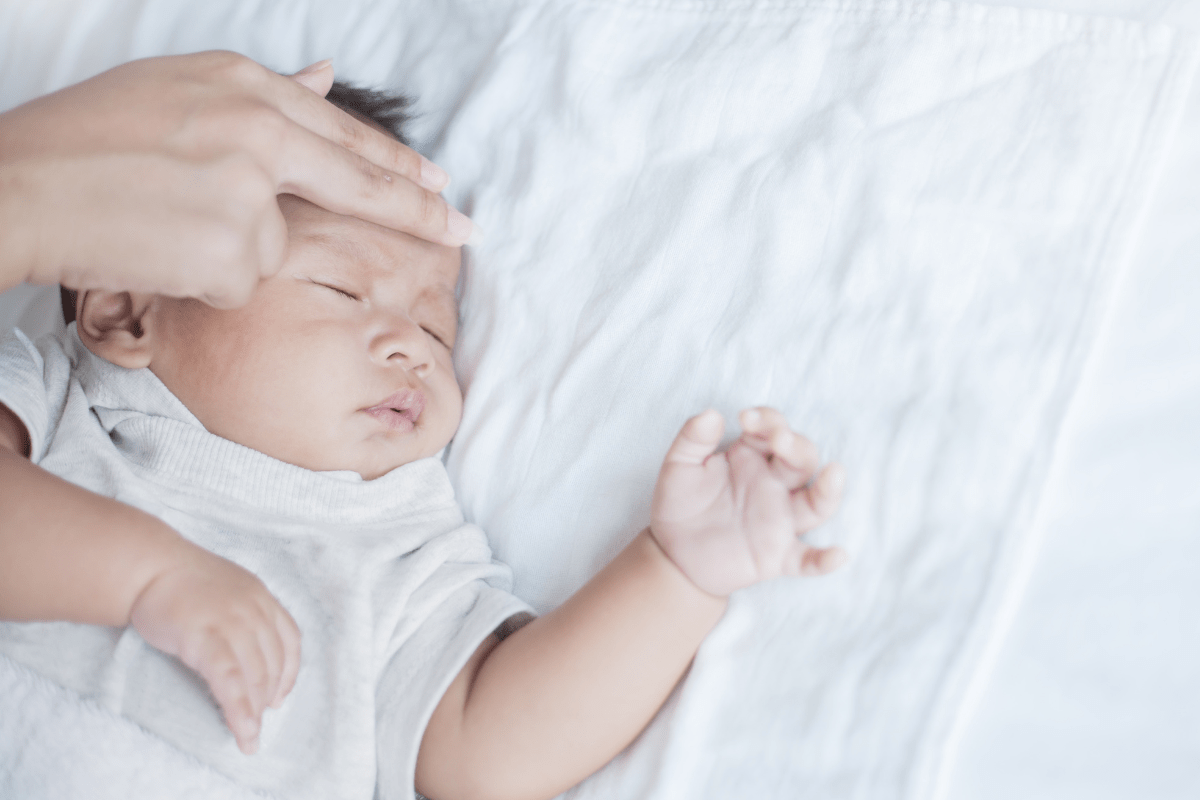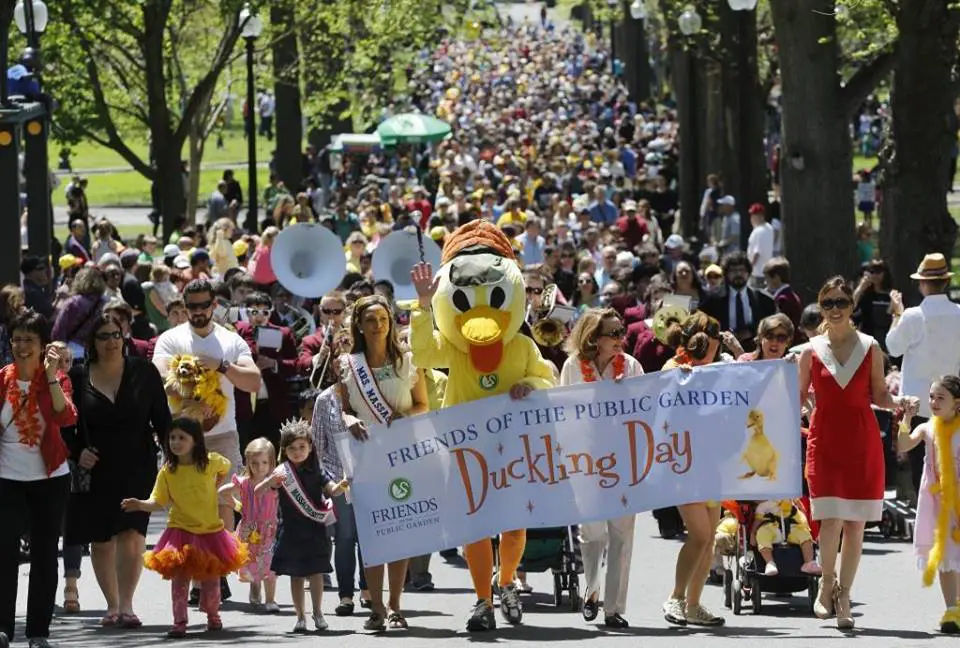Content warning: This post contains a detailed account of a medical emergency experienced by a very young child.

We all know the journey of parenthood is filled with joys, challenges, and countless surprises. But some surprises are not the kind you want to encounter — like febrile seizures. Our son was not even a year old when we first had this terrifying experience. And the shocking lack of information about febrile seizures left us feeling scared and unprepared.
A terrifying night
Our son was 10 months old on New Year’s Eve, and we were staying overnight at the home of some college friends — a tradition we have had for more than a decade. After lots of time playing and catching up with the adults, we put our son to bed in a nearby bedroom. We knew the excitement and new surroundings would have him up at least a few times throughout the night, so I listened intently to the baby monitor and checked on him constantly.
At about 10:30 p.m., he woke up and cried, so I headed to his room to comfort him and nurse him back to sleep. Holding him in my arms, he suddenly un-latched and froze. He was stiff — as if paralyzed — and twitching, with his eyes rolled back. Something wasn’t right.
I yelled for help and carried him out to the living room where my husband and our friends were. Panic set in as we tried to comfort him, fearing for his safety. We called 911, and everyone helped to quickly remove my son’s clothes and lay him on his side on the floor while we attempted to calm his tiny body.
We were fortunate that our group of friends included a paramedic, several former EMTs, and an emergency medicine resident, who rode with us in the ambulance to the hospital and helped us to remain calm. I’ll never forget the helpless feeling of seeing my son seizing and not knowing what was wrong or what to do.
In the ambulance, my son started moving normally again but seemed exhausted and confused. We nervously arrived at the emergency room, not knowing what to expect. As we described the episode to the doctors, we were asked several pointed questions: What was going on when it happened? How long did the seizure last? Had my son been sick or had a fever recently?
Getting answers
Although time had stopped for me, one of our friends had watched the clock as it all happened, and baby’s seizure clocked in at 10-15 minutes. We shared what we knew with the doctors, and they did a full exam on my son. His high fever tipped the experienced medical staff off right away that what had happened was a simple febrile seizure — something neither my husband (a former first responder) nor I had ever heard of.
The doctor told us that febrile seizures are caused by a high fever in children from 6 months to about 5 years of age, and they occur in 2-5% of children. They are often recurring.
After ringing in the new year in the ER, we were relieved when we had the all-clear to discharge. We were instructed to monitor my son’s temperature for fever (100.4° or higher) and use fever-reducing over-the-counter medication (such as Children’s Tylenol). We took my son back to our friend’s house and reassured everyone that he was going to be OK.
Early the next morning, we woke up to loud moans and screams from my son. Rushing to his side, we were confronted with a terrifying sight. Our little one was lying on his back, his body jerking uncontrollably, his eyes rolled back. He was having another seizure. This time, we knew to act quickly and to take note of the time. We quickly hopped in the car and headed back to the emergency room. This time, the seizure lasted much longer — it was nearly an hour before my son stopped seizing and “woke up” from the episode.
The longer time frame and repeat instance classified it as a complex febrile seizure, so the doctors admitted my son for monitoring. Over the next 24 hours, we stayed by him as he lay in a tiny hospital crib dressed in a toddler-sized hospital gown, an IV in his arm. He remained a happy guy, enjoying the attention and new toys offered at the pediatric wing of the hospital, while we focused on his comfort and getting his fever down.
Our doctors eventually agreed that what had happened was another febrile seizure. They recommended we continue to monitor our son’s temperature, since a fever can trigger another episode. The doctors assured us that febrile seizures are distinct from other types of seizures and, on their own, are not an indicator of any other seizure disorder. Nearly half of children who experience a febrile seizure will experience another, but the vast majority of children with febrile seizures do not have seizures without fever after age 5.
The importance of awareness
Fortunately, our son has not experienced one since, and we are hopeful that, at nearly 5 years old, he has grown out of them.
Now that we know what febrile seizures are, we feel more confident about what to do if my son, or other babies or young children we know, experiences one. It is always scary when your child has a medical crisis, but we are thankful we were able to act quickly and had access to caring professionals who helped my son to recover. My husband and I were also thankful for their patience in teaching us so we have a critical awareness of febrile seizures. While the seizure itself shocked us, we were just as surprised by the fact that we had never heard about them before.
Why is it that febrile seizures were not part of any of our standard caregiver education conversations? How had we never come across this in our parenting books? This question has continued to concern us. As first-time parents, we had diligently educated ourselves about common childhood illnesses and injuries. We were well-versed in childproofing our home, administering first aid, and recognizing the signs of many health issues. However, febrile seizures had never been on our radar, and that was a glaring gap in our knowledge.
This lack of awareness can lead to panic, confusion, and even delayed medical intervention, which is far from ideal during a crisis.
We are thankful for our son’s health every day. But the experience left us with a valuable lesson: It’s crucial for parents and caregivers to be informed about the possibility of febrile seizures and how to respond when they occur. Knowledge can make all the difference in providing the right care promptly.
For more information about febrile seizures, please consult the following resources, and be sure to talk to your child’s pediatrician.
- The Mayo Clinic
- National Institutes of Health/National Institute of Neurological Disorders and Stroke
- The Epilepsy Foundation












